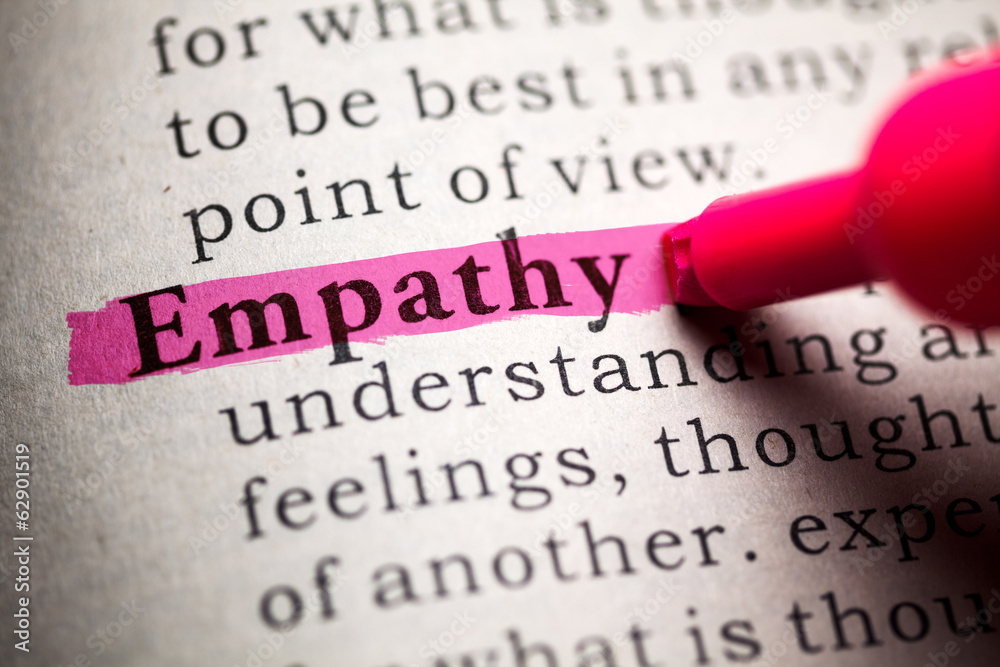You never really understand a person until you consider things from his view… until you climb inside of his skin and walk around in it.
– Atticus Finch, To Kill a Mockingbird
We’ve all heard the phrase “to walk in another person’s shoes”; this is a reference to the experience of empathy. Empathy is the experience of understanding another person’s thoughts, feelings, and situation from their point of view instead of your own. A key aspect of empathy is that it cannot be forced, and that it has biological roots in our brains through “mirror neurons”. Seeing someone experience an event causes these neurons to fire automatically as though we were experiencing the event ourselves, meaning that we are naturally hardwired to be empathetic towards others!
There are two types of empathy:
- Affective Empathy: These are the sensations and feelings we experience when witnessing someone else’s emotions. For example, it’s like absorbing the stress in a room full of students taking an exam or shedding tears during an emotionally charged scene in a movie.
- Cognitive Empathy: This involves understanding another person’s perspective. It’s the ability to comprehend why someone else is feeling a certain way. For instance, it’s understanding the withdrawn behavior and missed deadlines of a recently divorced coworker or why a complex artwork can bring someone to tears.
Empathy vs. Sympathy
Empathy is often used interchangeably with sympathy, but it’s crucial to differentiate between the two.
Sympathy is the feeling of compassion, sadness, or pity at a distance for a difficult situation another person is experiencing. This looks like sending a card to someone who has lost a loved one, or feeling bad for a homeless person you may encounter on the street. What makes empathy different from sympathy is actually feeling the same emotions as those living these experiences and immersing yourself in their experience rather than considering your take on the experience. This is imagining what it would feel like to be homeless by drawing upon past experiences with financial hardship, or taking on the feelings of loss or grief of the person who has lost a loved one. Simply put, sympathy is saying “I feel sorry for you”, and empathy is saying “I’ve been there before, I know how you feel, I am you right now”.
Challenges in Experiencing Empathy
Although we are hardwired for empathy, it is a social trait that may not come easily or naturally for many. Developing this trait involves openness to different perspectives, people, and life experiences and the ability to identify our own feelings and consider them in relation to others. Those who may have difficulty developing empathy may have trouble with cognitive empathy which spills over into difficulty with affective empathy. For some it may be difficult or overwhelming to empathize with others and withdraw or suffer from certain mental illnesses that prevent them from being able to empathize with others. Regular counselling with a qualified counsellor can help those who struggle with empathy to devise skills to aid with their response to the emotional distress of others.
At C.S. Counselling and Consulting Services, we specialize in private individual, couples and family counselling addressing coping skills and mental wellbeing, depression, anxiety, alcohol and substance abuse, and navigation of legal proceedings with a healthy sense of self. We see both call-in and referral clients, and offer services in Hindi and English from RSW-registered professionals. At C.S. Counselling Services it is our goal to work with you and/or your loved one to provide clarity while developing skills to cope during an otherwise stressful and challenging time.

